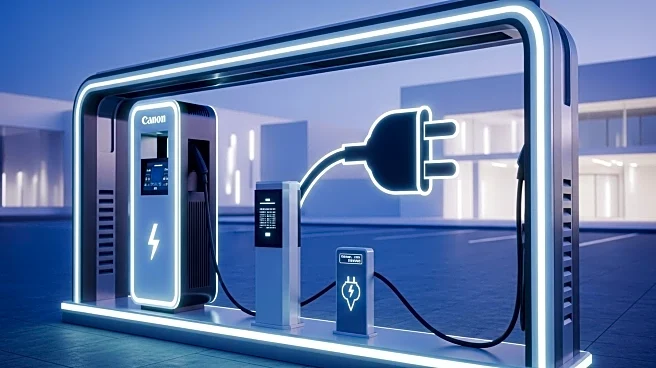What's Happening?
BMW has expressed concerns over the European Union's plan to ban gas engines by 2035, arguing that such a move could severely impact the automotive industry. Joachim Post, BMW's Chief Technology Officer, emphasized the importance of consumer choice and warned that the ban could lead to significant repercussions for the industry. BMW has not committed to a fully electric future, preferring to offer a range of powertrains to meet diverse consumer demands. The company continues to invest in both electric and combustion engines, highlighting the profitability of traditional powertrains. BMW's stance is supported by other industry leaders, including Mercedes CEO Ola Källenius, who also cautioned against the potential negative consequences of the EU's plan.
Why It's Important?
The EU's proposed ban on gas engines represents a significant shift in automotive policy, with potential implications for manufacturers, consumers, and the broader economy. BMW's criticism underscores the challenges faced by automakers in transitioning to electric vehicles, particularly in terms of infrastructure and consumer readiness. The ban could lead to job losses and economic disruption within the industry, affecting stakeholders across Europe. BMW's position highlights the ongoing debate over the pace and feasibility of transitioning to electric mobility, with implications for global automotive strategies and market dynamics.
What's Next?
The EU's plan is set for review, with automakers urging reconsideration of the 2035 ban. BMW and other industry players are advocating for a more balanced approach that considers consumer preferences and infrastructure development. The outcome of this review could influence future automotive policies and the industry's trajectory towards electrification. Stakeholders are closely monitoring developments, as the decision could have far-reaching effects on manufacturing, employment, and market competition.








